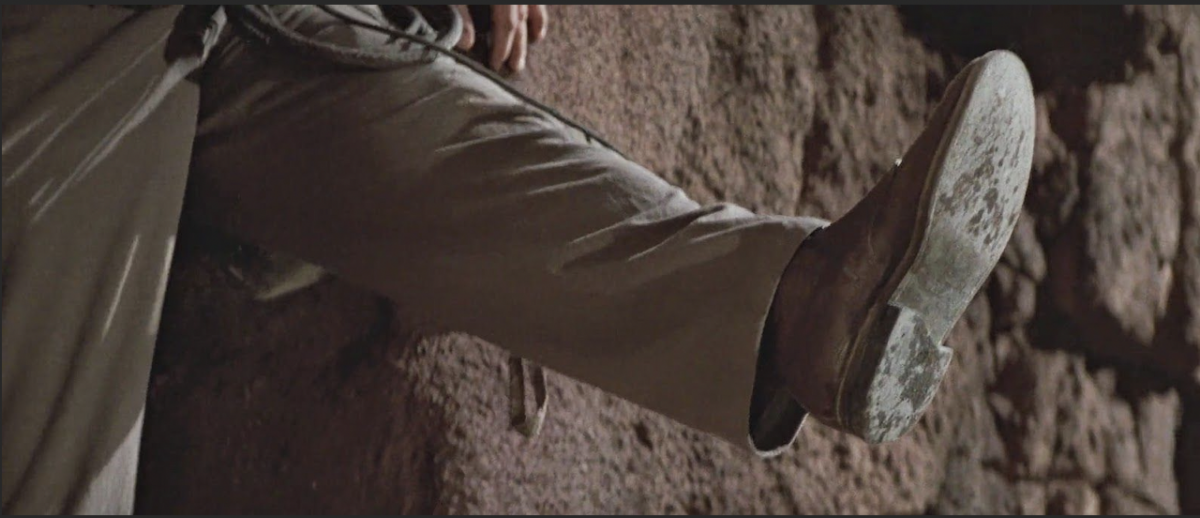 I’ve fallen into something of a rut, and I worry if I don’t commit a few things to paper (er… you know what I mean), it may gradually evolve into the new normal. That’s one of the trickiest things about ruts – it doesn’t take long before you feel like you’ve always been in them, and that perhaps in reality there are no other options, no better roads or directions. There is only… THE RUT.
I’ve fallen into something of a rut, and I worry if I don’t commit a few things to paper (er… you know what I mean), it may gradually evolve into the new normal. That’s one of the trickiest things about ruts – it doesn’t take long before you feel like you’ve always been in them, and that perhaps in reality there are no other options, no better roads or directions. There is only… THE RUT.
I’ve returned this year to teaching history and government and such, which in my world means my students are several years older than those I’ve usually had in the past. I’m much more comfortable with the subject matter, and – other than a few isolated incidents – there hasn’t really been much in the way of serious classroom management challenges.
Er… depending on how you look at it. That’s where the rut comes in.
See, the thing about older students – at least in my district – is that they’re far less likely to “throw down” with you or openly defy your requests. They may get a bit loud, but if they’re still coming to school at this point, they’re either here by choice or as part of the terms of their parole. Most aren’t looking for confrontation (although it’s certainly possible to provoke them with the wrong approach) and they’ve learned by now how to stay out of serious trouble – at least at school.
On the other hand, many are still not what you’d consider “strongly self-motivated.” They care about their grades, but have a very hard time acting on that concern when it’s time to actually do the work. Perhaps it’s more accurate to say they lack self-discipline more than they do motivation. If there’s such a thing as “grit” in a positive, academic sense, very few of my kids have developed it.
What this means in practice is that they’re not always good at listening to instructions or processing the information I share, even with notes in front of them. They resist reading and get easily distracted in class – but they do so fairly quietly, and often pleasantly. Trying to have full class or small group discussions with them is maddening, and discouraging. Even brief presentations loaded with visuals and turn-n-talks generally leave me feeling disrespected and a bit resentful. They’re comfortable enough with me to whine about almost anything interesting or challenging I ask them to do, but mature enough to keep it within the bounds of manageable classroom resistance. (I’m not filling out a discipline report for “whined about my webquest and bruised my little ego.” And can you imagine that parent phone call? “Hello, Ms. Tolbert? Lil’ Johnny sighed and rolled his eyes at me today in class when he first saw the assignment, and I just think you should do something about it.”)
On the other hand, when I hand out bookwork, or an article with some questions, or an online vocabulary activity, it takes me five minutes or less to explain. For the rest of the period, the kids who are going to do it work quietly and ask me questions as necessary. The rest largely entertain themselves and only periodically panic and ask if they can make up everything that’s been assigned since seventh grade or so. Mostly, though, I can walk around and check on them, harass them to do the work, and “build relationships” – or I can get caught up grading, try to lesson plan for any of my three different preps, or deal with the endless emails reminding me to take the same 3-hour “seizure training” I’ve taken the past five years so i can take the same quiz at the end.
It’s that last part that has become a problem. Not the endless bureaucratic requirements (although those are as inane as ever). It’s the part where I can explain the assignment in about five minutes and then effectively do other things while they either work on it or they don’t, and chaos doesn’t erupt as a result.
It’s wonderful. And terrible. It’s addictive, and not at all good for most of my kids. They make it way too easy for me to just leave them alone.
Don’t get me wrong – I’m available for legitimate questions. I’m friendly about it, and I don’t get ugly with students who choose not to do the work. I have to rein in volume from time to time, but even that’s not a big deal most days. It’s an excellent system – except for the part where three-quarters of my kids are failing as a result.
So… that’s not ideal.
I know from talking to other teachers in my building that it can be a constant struggle trying to get these kids to read, to write, to respond, to think, to interact – to care, or at least go through enough of the motions that we can play school.
But I also know that there are teachers succeeding at those things. They break the material down however many times it takes to make it manageable. They insist that students interact with them and with one another. They model. They explain. They assist. They engage. They explain it all again. They push through the blank stares, the resistance, the tuning out, the distractions, and the crushing lack of background knowledge, reading ability, or interest, and they score small, but repeated victories. Not with everyone, but with enough of them to do it again the next day.
I’m ashamed to confess that I’ve become a bit resentful of how hard many of my kids make it to teach them. I feel something akin to embarrassment when they resent or disparage assignments I’ve spent so much time and effort creating with them in mind. I want to become defensive and point out that I’ve done plenty of high-interest activities with students over the years! It’s just that most of them require some base level of knowledge, a little maturity, and the ability to interact with others productively.
I’ve fallen into a bad habit of resenting it every time I try to engage them and it fails (again). It’s like I should know better by now, but I keep trying anyway, and somehow that makes it so much worse. I’m not sure how much of it is my frustration with them and how much is embarrassment at my own pedagogical impotence. I swear to god, I used to be good at this. Once. Long ago.
At least, I think I was. I have letters and memorabilia and blog posts suggesting it went pretty well for quite a few years. If I’m being completely honest, though, it all feels pretty far away these days – and no longer entirely real. I find myself increasingly convinced that whatever good I might have managed back then has been long-since negated by the past few years.
That’s not logical, or even realistic – but like I said, it’s a rut.
That’s why it’s so tempting to keep busting out those word searches and textbook questions. I don’t know how educational they are, but it’s easy and quiet and the room is quite manageable. Nearly half of them will at least pretend to do them. They’re happier, and I don’t spend so much effort trying to raise the dead and feeling inept and naive as a result.
If only it weren’t for that “not learning much” and “everyone’s failing” thing. Super inconvenient, that.
The issues at the root of these dynamics didn’t originate with me, but that doesn’t absolve me of the responsibility to do better than this. Left unresolved, ruts like this have the potential to send us off the road altogether – into apathy, bitterness, or worse. Plus, like I said, it’s not like there aren’t teachers around me finding ways to make it work. It’s probably time I put on my big teacher panties and start trying again to find similar solutions.
For me, this begins with a little introspection and some peer-to-peer confession – which you’re nearly finished reading right now. (For the record, I shared most of these same thoughts with a few real, live peers first.) Now it’s time to set aside whatever ego or doubt may be getting in the way and start trying things again. Maybe I’ll start by having a few conversations with those teachers who are having some success, however mixed.
This is probably going to be a LOT of work, and I suspect I’ll have many more frustrating days moving forward. But something should eventually click. Some of them will start getting it. Honestly, experience tells me even the bad days aren’t usually as bad as they seem at the time. No point giving up now.
Something has to eventually work. Besdies, if nothing else, I’m ready to try a different rut.

 I wrote recently about
I wrote recently about  There are so many things about teaching that are difficult to explain to those outside the field. (That may be true of other professions as well, but this is the one I know best.) Even within the world of public education, it’s tricky to balance honesty with optimism, or transparency with teamwork. Too much venting can feed on itself and become entrenched cynicism. An excess of chipper determination, on the other hand, risks building endless castles on the sands of delusion.
There are so many things about teaching that are difficult to explain to those outside the field. (That may be true of other professions as well, but this is the one I know best.) Even within the world of public education, it’s tricky to balance honesty with optimism, or transparency with teamwork. Too much venting can feed on itself and become entrenched cynicism. An excess of chipper determination, on the other hand, risks building endless castles on the sands of delusion. I teach in a district that’s had some struggles in recent years. We’re majority-minority and 100% of my kids are “free and reduced lunch” (mostly “free”). Add in eighteen months of not having real school and the fact that most of the schools feeding into mine are already under state “control” (an ironic term by any measure), and it’s easy to grow discouraged. There aren’t always those “breakthrough” moments you count on to stay motivated – personally or academically.
I teach in a district that’s had some struggles in recent years. We’re majority-minority and 100% of my kids are “free and reduced lunch” (mostly “free”). Add in eighteen months of not having real school and the fact that most of the schools feeding into mine are already under state “control” (an ironic term by any measure), and it’s easy to grow discouraged. There aren’t always those “breakthrough” moments you count on to stay motivated – personally or academically.